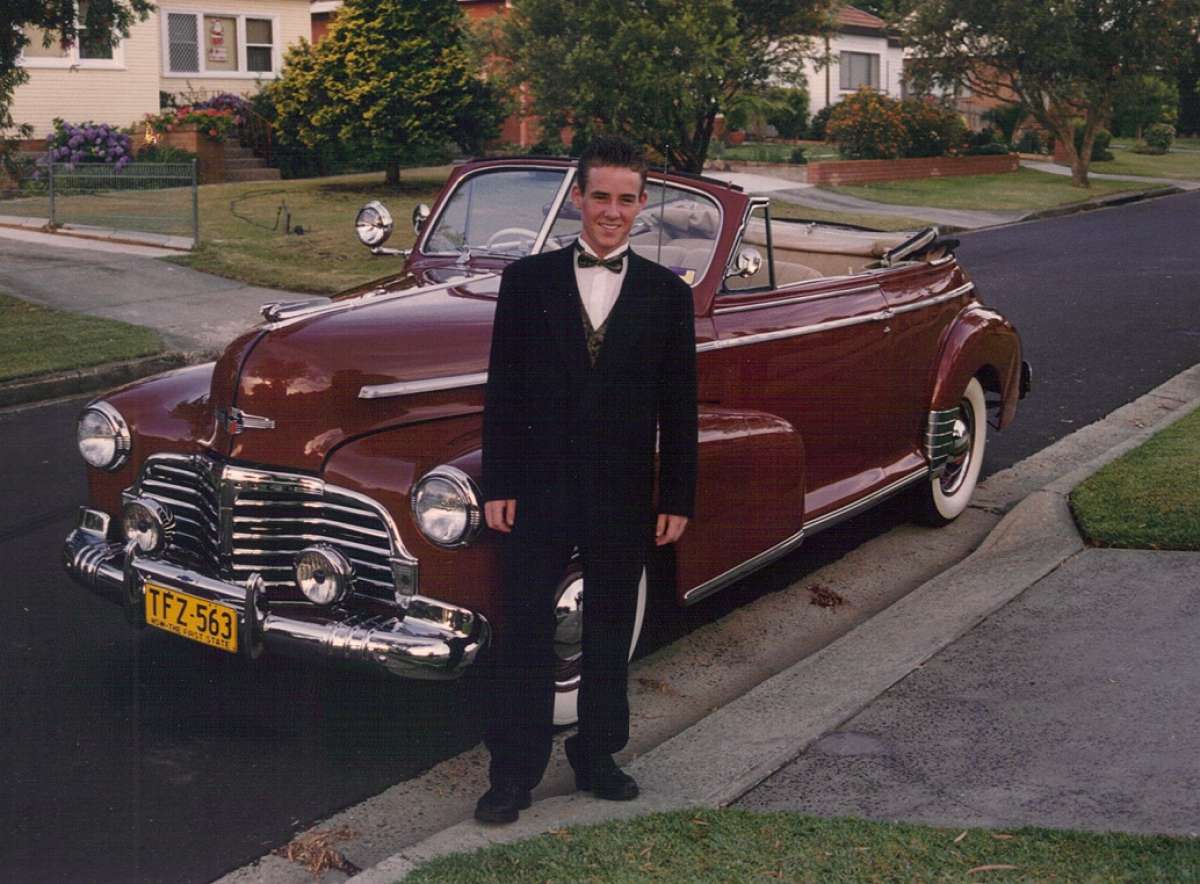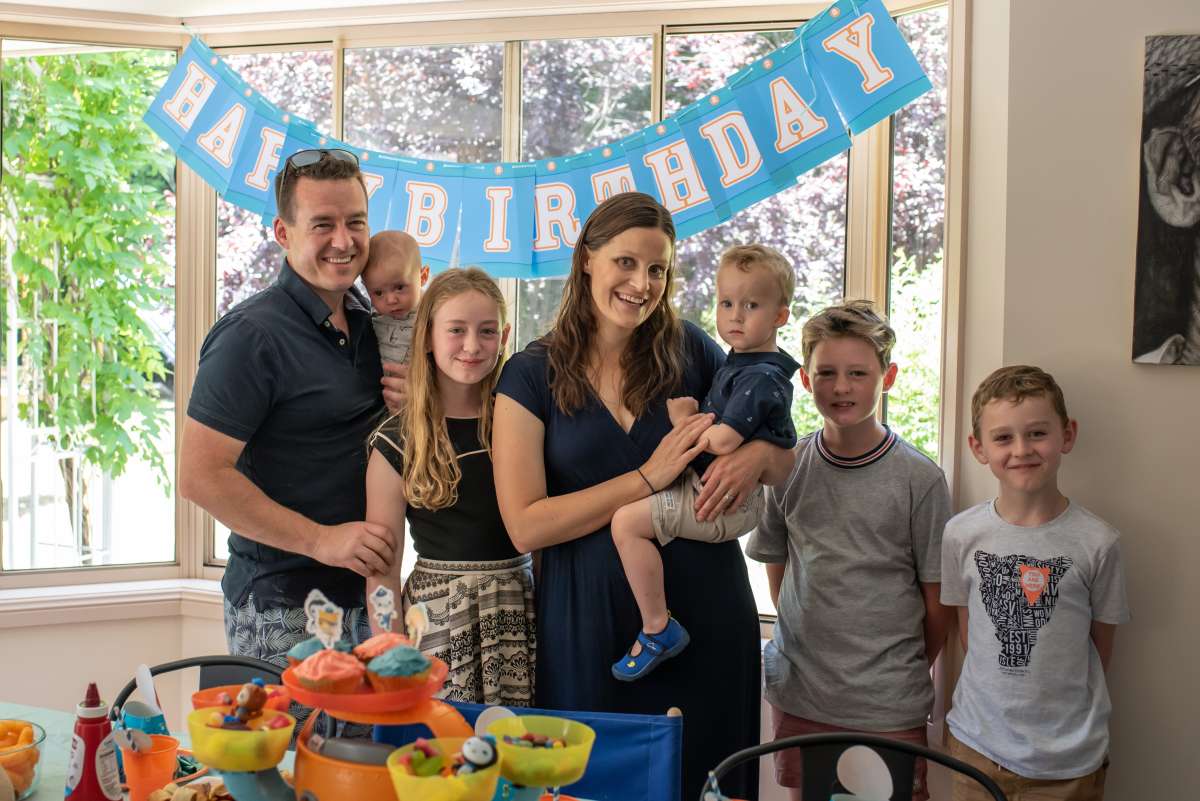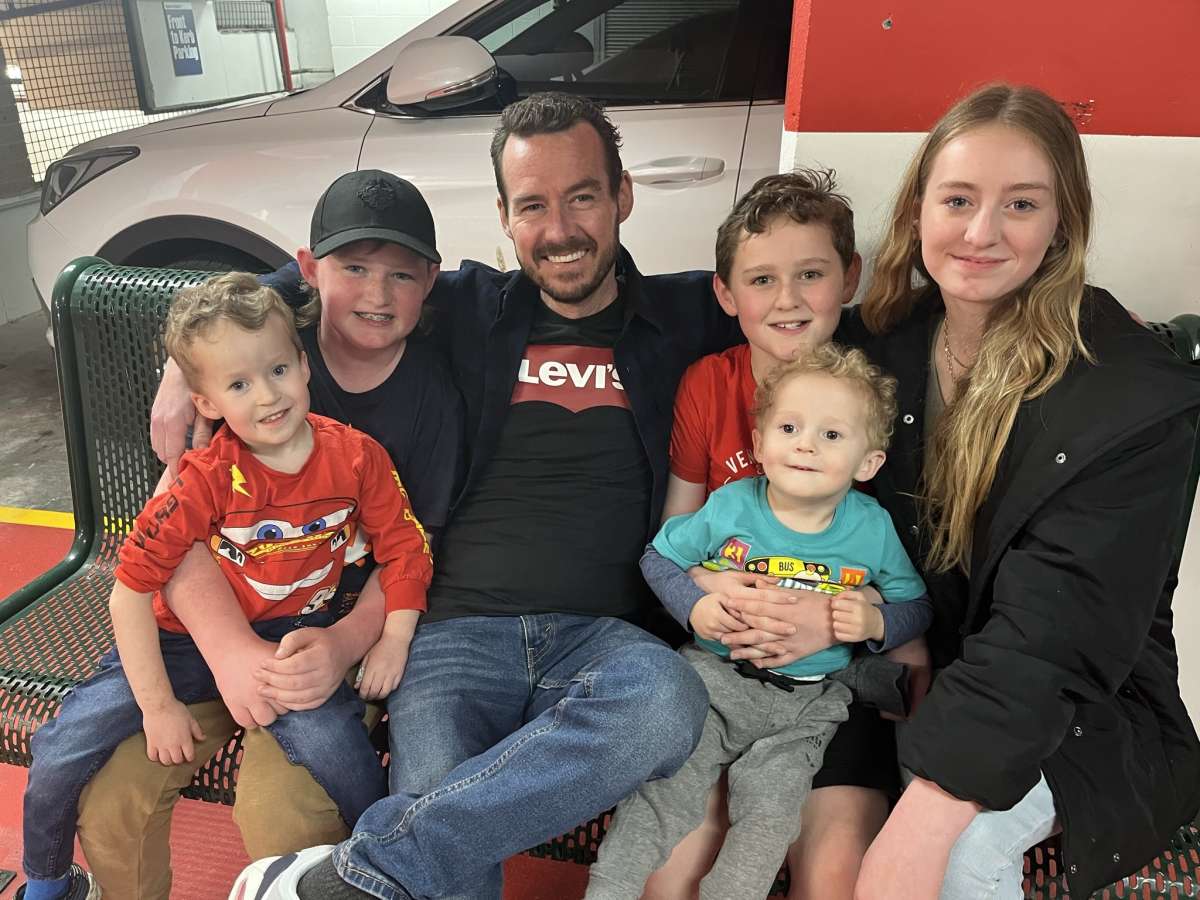October 24th, 2024
Bowel Cancer: Not An 'Old Person's Disease'
Tim had the sort of smile it was impossible not to return; a full-faced, contagious grin that crinkled his eyes and emanated warmth and openness. On the surface, he was larger than life, a lovable larrikin with a vivid sense of humour. But beneath the light-heartedness and the laughter was a man who cared deeply for others and wanted the best for everyone. And while his sensitive side was often camouflaged by his tendency to joke, his kindness was a quality appreciated by those who knew and loved him best.

Tim was crazy about classic cars—a trait inherited from his mechanic father—and had a deep connection to the ocean. He was a surfer, golfer, a keen traveller, loved his job as FDC’s Development & Planning Manager, where he built a close-knit network of mates over almost 16 years. He was a dedicated dad to his kids. Life was good, until it wasn’t. His terminal bowel cancer diagnosis came seemingly out of nowhere.
Bowel Cancer is not—as it is often assumed—an ‘old person’s disease’. In Australia, bowel cancer is the second deadliest cancer, although 99% of cases can be treated successfully when detected early. According to Bowel Cancer Australia, 1 in 15 Australians will develop the disease in their lifetime.
Around 30% of people who develop bowel cancer have either a hereditary contribution, family history or a combination of both. The other 70% of people have no prior indications. The risk rises sharply from age 50, but the number of Australians under 50 diagnosed with bowel cancer has been increasing. While the national bowel screening program is an essential tool, it is not foolproof, and Tim’s story is a devastating reminder of that.

The day that changed everything
When Tim received his diagnosis in November 2021, he had no symptoms to speak of. Severe abdominal cramping began in August 2021 and Tim’s wife, Naomi, insisted he go to hospital to rule out the possibility of blood clots.
“Tim was tested for clotting factors and everything came back fine. He made a follow up appointment with our GP, did a stool test, and even then, except for some heightened bacteria concurrent with drinking tank water, there was nothing to report,” Naomi explains. The doctor prescribed antibiotics, suggesting the issues would clear up themselves, and gave Tim a referral for a CT scan, in case the symptoms persisted.
The days rolled on as normal. But three months later, Tim experienced another attack of severe abdominal cramping. Naomi, who has a background in nursing, knew something wasn’t right. “My instinct was that whatever was causing Tim’s issues had not been resolved. I got Tim’s referral and booked him in for a CT scan immediately. The day after the scan, the GP called Tim into his office. He told Tim they had found a huge mass in his bowel that had spread to his liver. Tim called me, crying. I was shocked at the way he was given the news, without anyone there to support him,” Naomi says. “Everything just happened so quickly. It was a pretty horrific day.”
An uphill battle
Tim worked closely with FDC founder Ben Cottle, and Ben was one of the first people Tim called upon receiving his diagnosis. Ben immediately sprang into action. “We found out about the cancer on Thursday, and by Monday, Ben had Tim booked in with an amazing colorectal surgeon for a colonoscopy. We already knew there was a big tumour at that stage, but the surgeon couldn’t even pass the camera. Tim had just a three-millimetre diameter in his bowel,” explains Naomi. What followed was a hemicolectomy—cutting out the affected part of the bowel and rejoining it. “It was a huge surgery with two weeks recovery, after which we were introduced to oncology. It all went downhill from there,” she adds.
Naomi’s biggest concern about bowel cancer is that screening isn’t failsafe. “Everyone says do the ‘poo test’ but it didn’t detect Tim’s late-stage cancer.” Early detection is key, but so is education. That’s why it’s important to know what the symptoms are and have them investigated if they persist for more than two weeks. Naomi urges people to be aware of any changes in their bodies and to push for further testing if something feels off, even if initial screenings come back clear. Trust your instincts and ensure you get the answers and care you deserve.

Searching for answers
Tim’s terminal cancer prognosis urged him and Naomi to seek out alternative treatments. “It was like, chemo’s not going to cure him, so now what?” she says. “We went down an alternative path for a while, a drastic diet, cutting out sugars and carbohydrates. We flew to Houston for some experimental treatments alongside supplementary chemo, at great financial expense. The chemo continued when we returned to Sydney, and the first round helped, but after that, his cancer became resistant to it.
“We ended up going down a path of more alternative treatments, which was a spiritual journey too. We went on retreats together to help us come to terms with the diagnosis. My background is health. I've always believed in the western medicine model, but Tim’s experience flipped everything on its head."
“The people we met in the alternative health space are the people who gave us strength, connecting us with others they thought could help. We found an incredible integrative oncologist to work with. It was a fully holistic approach, looking at diet, mindset, motivation, exercise, supplementation. During the retreat, everyone was asked to identify their spirit animal. Tim chose the black cockatoo. It was symbolic for him.”
Black cockatoos are representative of change and enlightenment and are believed to be the guides and guardians of the spirits of loved ones. “Before Tim passed, there were a lot of black cockatoos flocking around our house. They were there on the day of his memorial, and on our youngest child’s third birthday as well,” says Naomi. “I get messages from friends saying, ‘I've just seen a black cockatoo, I’m thinking of Tim!’ At FDC they even have a picture of a black cockatoo hanging on the wall. It’s created an enduring connection to him. Tim was the biggest joker—but he also worried about a lot of things. We learnt together that the worry doesn’t matter. You have to live life to the fullest and not sweat the small stuff.” And if you ever see a black cockatoo, soaring in the sky, or making its distinct, raspy call, think of Tim—a man whose strength, humour, caring and contagious smile will always be remembered.
Timothy Luke Bainbridge 06.05.1982 - 17.07.2023
For more information about Bowel Cancer, visit bowelcancerustralia.org
